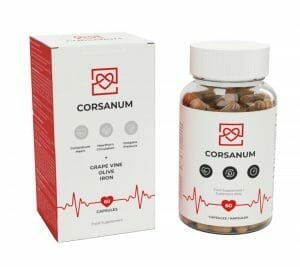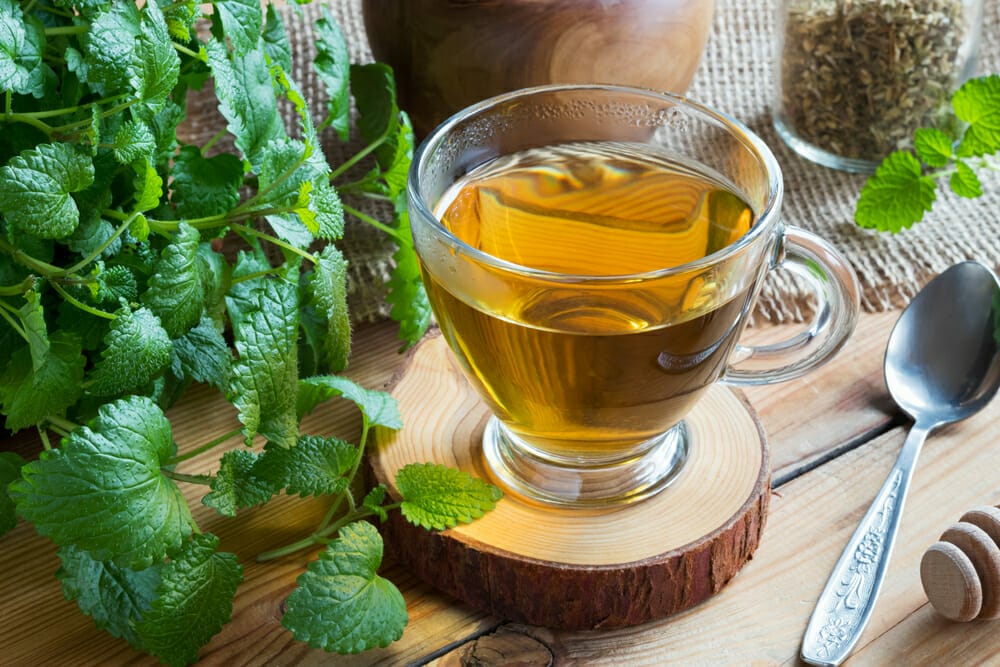The heart is a key organ responsible for pumping blood through the entire body, and thus for supplying every cell with oxygen and nutrients. When the heart works in a disturbed way, it reflects negatively on our well-being and the work of the entire body. When dealing with heart problems, properly selected herbs can be extremely helpful. Medicinal plants stocked with glycosides and other components valuable to the heart muscle can be effective antidotes to common ailments, such as cardiac arrhythmias, poor heart performance, and circulatory problems. However, it is worth noting that for more serious heart problems, we should consult a doctor before using medicinal plants. What herbs to choose for the heart, and when and how to use them?
Table of contents
- 1 The role of the heart muscle in our body
- 2 Herbs for the heart and circulatory system – properties and composition.
- 3 Herbs for the heart – applications
- 4 Herbs for strengthening the heart
- 5 Herbs for palpitations
- 6 Herbs for cardiac arrhythmia
- 7 Herbs for cardiac neurosis
- 8 Herbs that support the coronary vessels
- 9 Antispasmodic herbs
- 10 Cardiac herb – remedy for palpitations
- 11 Black currant leaf – help with circulatory failure and weakening of the heart muscle.
- 12 Lily of the valley – greater heart capacity, more stable pulse.
- 13 Ginkgo biloba – improving circulation and helping the coronary vessels in one.
- 14 Digitalis – on guard for the proper work of the heart muscle
- 15 Hawthorn – a specialist in combating arrhythmia and hypertension
- 16 Mistletoe – a natural way to lower blood pressure
- 17 Ginger – comprehensive support for the circulatory system, antiatherosclerosis
- 18 Hops cone – calming for the heart
- 19 Rosehip fruit – strengthening the heart and the whole body
- 20 Herbs for the heart – dosage. How to prepare herbal infusions?
The role of the heart muscle in our body
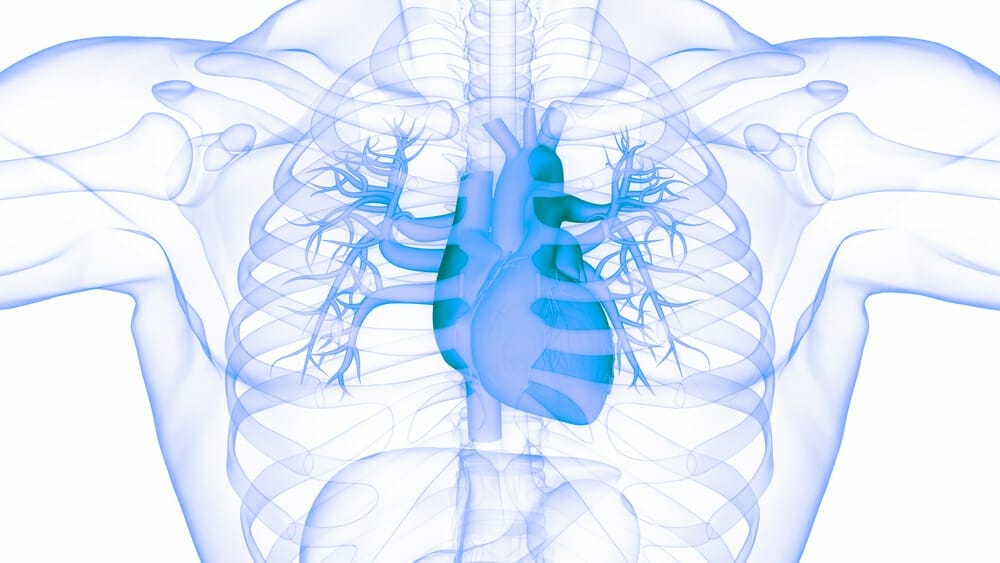
The heart is a fist-sized organ located in the center of the chest that works without a moment’s rest throughout our lives. It is one of the most important and noteworthy organs, and its impeccable work is a prerequisite for impeccable health. The main task of the heart is to pump blood so that it, along with oxygen and nutrients, can reach every smallest part of our body.
The functions of the heart are primarily:
- pumping blood into the main circulation,
- pumping blood into the pulmonary circulation,
- ensuring the transport of substances within the body (including, among other things, the supply of oxygen to cells and tissues, the supply of nutrients to cells and tissues, the removal of unnecessary metabolic products, the removal of carbon dioxide),
- ensuring efficient, continuous operation of the cardiovascular system.
Herbs for the heart and circulatory system – properties and composition.
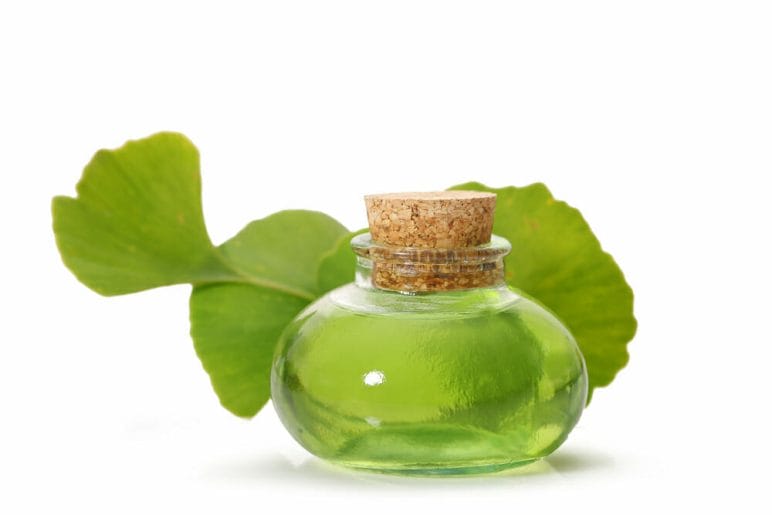
Individual medicinal plants can affect the heart in a variety of ways. They can increase the level of oxygenation of the heart muscle, regulate heart function and prevent arrhythmia, increase the strength of heart muscle contraction or act diastolic, dilate the coronary vessels of the heart, have a calming effect on the nervous system and thus stabilize the heart rhythm, strengthen the heart and generally increase its performance.
Some herbs perform several of these tasks simultaneously. In addition, many of them support the cardiovascular system in other ways, such as normalizing blood pressure, thinning the blood, acting as an anticoagulant, and preventing the formation of atherosclerotic plaque. Due to the different range of actions of each herb, it is recommended to consult a doctor before using them.
The active substances contained in the herbs responsible for beneficial effects on the heart and cardiovascular system are:
- cardiac glycosides,
- saponins,
- flavonoids,
- phenolic acids,
- phytoncides,
- mineral salts (including potassium, selenium, calcium, zinc),
- choline,
- vitamin E,
- B vitamins,
- unsaturated fatty acids (in such herbs as flaxseed, chia seeds, hempseed).
Herbs for the heart – applications
The heart is worth taking care of throughout life, regardless of whether it works perfectly or underperforms. In caring for the heart, it is worth leading a healthy Mediterranean-type diet, avoiding stimulants, remembering moderate but regular physical activity and supporting yourself with natural, beneficial for the heart specifics, such as herbs.
When to use herbs for the heart? They work well in the case of:
- cardiac arrhythmias with a nervous background,
- mild conditions of cardiac and circulatory insufficiency,
- weakening of the heart muscle due to advanced age,
- weakening of the heart due to past illnesses,
- weakening and deterioration of the heart resulting from psychophysical exhaustion and nutritional deficiencies,
- palpitations resulting from hormonal fluctuations (for example, during menopause),
- supportively in the course of cardiovascular diseases such as coronary artery disease, hypertension, atherosclerosis and as a preventive measure after a heart attack.
How to use herbs for the heart?
The active substances in herbs for the heart are released in aqueous or alcoholic solutions, so a popular way to use them is to drink both infusions and medicinal tinctures. You can also prepare a mixture from individual herbs in dry form (such as hawthorn, cordial, lemon balm, elderberry and rosehip).
Also very popular are ready-made preparations for strengthening the heart, in which appropriately selected herbal extracts are placed, for example, in the form of drops, syrups, liquids, tablets and capsules.
Herbs for strengthening the heart
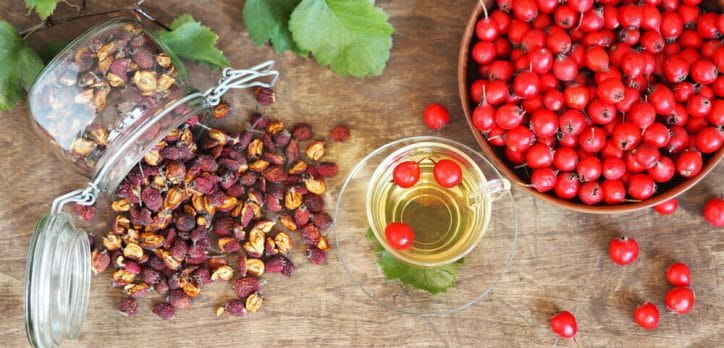
Among the natural ingredients that support the heart, herbs with a strengthening effect on the heart muscle are an important group. They contain a large amount of antioxidants, vitamins and minerals. They have a revitalizing and protective effect (protect against the negative impact of harmful free radicals and toxins). They stabilize heart function and support blood vessels. These include cordial, rosehip, hawthorn, flaxseed, hibiscus, green tea, moringa, ashwagandha, Ginkgo biloba, among others. Cocoa also has good heart-strengthening properties.
Herbs for strengthening the heart will work well for the elderly, those complaining of heart fatigue, as well as auxiliary herbs for those struggling with heart conditions, and for exhaustion.
Herbs for palpitations
Herbs for palpitations reduce the frequency of heartbeats, thus slowing down the heart rate. Thanks to this, they counteract the unpleasant feeling of a heartbeat that is too strong and too fast, as well as the symptoms that appear against this background, such as problems with concentration, weakness, anxiety, irritability, dizziness, headaches. Lily of the valley, hawthorn, mistletoe, valerian, lemon balm, bird’s-foot trefoil can be very helpful here.
Herbs for cardiac arrhythmia
Herbs for arrhythmia counteract an irregular heartbeat. They help restore normal systolic and diastolic strength, normalize heart rate and blood pressure, and increase the efficiency of the heart muscle. These include spring ginkgo, foxglove, common cordial, valerian, goldenrod, among others.
Herbs for cardiac neurosis
These herbs are valuable support for cardiac disorders (such as chest pain, shortness of breath, arrhythmia, significant acceleration of the pulse) resulting from the patient’s poor mental state. Cardiac neurosis usually occurs as a result of being under high stress and increased, frequent feelings of tension, anxiety, nervousness. The most helpful herbs for cardiac neurosis are those with calming and slowing heart action properties, such as valerian, lemon balm, hops, passionflower.
Herbs that support the coronary vessels
This group of herbs for the heart includes ingredients with vasodilating effects and stimulating blood flow through the coronary vessels, thereby increasing oxygenation and cardiac performance. These include ginkgo biloba, hawthorn, rosemary, mistletoe, cordial, common rue, elderberry.
Antispasmodic herbs
Medicinal plants belonging to this group, by increasing the capacity of blood vessels, improving blood circulation and inhibiting platelet aggregation, counteract the formation of blood clots. They also have a strengthening effect on the heart. These include ginkgo biloba, ginseng , white willow, turmeric and ginger.
What are the best herbs for the heart? Here are effective species that have been used in herbal medicine for centuries:
Cardiac herb – remedy for palpitations
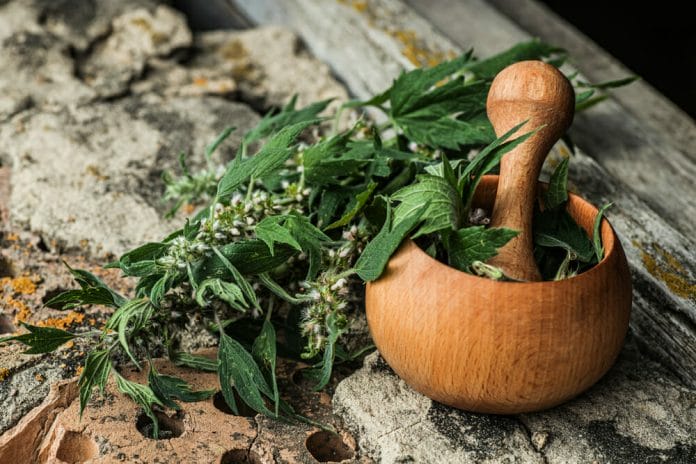
Heartwort is a perennial plant from the light family that is among the top herbs for the heart. It has an effective and multifaceted effect, which makes it successfully used in multiple cardiovascular ailments. It exhibits cardioprotective and at the same time slightly sedative properties. It strengthens the heart muscle, helps lower blood pressure, reduces arrhythmia and palpitations, counteracts shortness of breath, reduces nervous tension and anxiety.
Black currant leaf – help with circulatory failure and weakening of the heart muscle.
Black currant leaf is a lesser-known, but very useful herb for the heart. It is rich in valuable antioxidants, cleanses the blood and improves the heart and circulatory system. Thanks to its diuretic effect, it is an effective way to rid the body of toxins.
Lily of the valley – greater heart capacity, more stable pulse.
Glycosides of lily of the valley make the work of the heart more efficient and steady. They increase the strength of heart contraction, increase the stroke volume, while slightly reducing the frequency of contractions.
Ginkgo biloba – improving circulation and helping the coronary vessels in one.
Ginkgo is famous for its beneficial effects on the circulatory system. It makes blood vessels more flexible and dilates them, strengthens the walls of blood vessels, increasing their tightness. It improves circulation in the limbs and circulation within the heart, and stimulates blood flow in the brain, increasing oxygenation of the organ. It counteracts blood clots and improves cardiac performance.
Digitalis – on guard for the proper work of the heart muscle
Digitalis is a well-known plant medicine helpful in dilating coronary vessels. The glycosides present in foxglove and purple foxglove increase cardiac performance, increase ventricular ejection capacity and counteract abnormal and irregular heartbeat. What is worth knowing, glycosides of foxglove have a faster, stronger effect and accumulate in the body to a lesser extent than those of purple foxglove.
Hawthorn – a specialist in combating arrhythmia and hypertension
The herbal raw material of hawthorn is the inflorescences and fruits. This herb improves the ejection and minute volume of the heart, increases the strength of heart contraction, helps maintain normal blood pressure, stimulates circulation, strengthens veins. By dilating the coronary vessels, it increases the blood supply to the heart. It also has a mild sedative effect and normalizes the heart rhythm.
Mistletoe – a natural way to lower blood pressure
Promotes normal, uninterrupted heart function and is a natural antidote to high blood pressure. It dilates blood vessels, strengthens the heart, eliminates stabbing in the heart and palpitations on nervous grounds.
Ginger – comprehensive support for the circulatory system, antiatherosclerosis
Ginger contains a wealth of valuable antioxidants, comprehensively protecting and supporting the cardiovascular system and heart. It has a strengthening effect on blood vessels and heart muscle, normalizes blood pressure and prevents cardiovascular diseases, including atherosclerosis, coronary heart disease, heart attacks and strokes.
Hops cone – calming for the heart
Hops are primarily an effective natural sedative, but they also help the heart. It is especially useful for heart rhythm disorders caused by increased nervous tension and strong emotions.
Rosehip fruit – strengthening the heart and the whole body
Rosehip fruit contains phenolic acids and flavonoids in very high amounts, so it protects our cardiovascular system, counteracts the aging process and strengthens the heart.
Herbs for the heart – dosage. How to prepare herbal infusions?
Used systematically, herbal infusions regulate the heart, improve its efficiency, protect and strengthen the heart muscle and stabilize blood pressure.
The standard dose is 1 tablespoon of herbs per 1 cup of boiling water. Steep the herbs covered for 15 minutes. Drink 1 to 3 times a day.
Check out the multi-ingredient dietary supplement for a strong heart and efficient circulatory system: Corsanum
